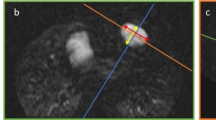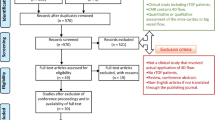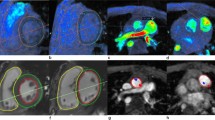Abstract
Quantification of pulmonary regurgitation (PR), pulmonary flow distribution, and ventricular function is important for clinical surveillance in repaired Tetralogy of Fallot (TOF). Cardiovascular magnetic resonance (CMR) is the established reference, but cost, test duration, and patient discomfort are potential limitations to its serial use. We investigated whether an Abbreviated CMR protocol would alter clinical decisions in TOF from those that would have been made using a full protocol. Patients > 7 years with repaired TOF were identified. CMR was performed according to standard complete imaging protocol. CMRs were prepared in two ways, Full and Abbreviated and submitted for review by two imaging specialists. In conjunction with clinical information and case-specific quantitative CMR data (PR fraction, ventricular volumes, ejection fraction, branch pulmonary artery flow), Full and Abbreviated image sets were anonymized and uploaded for review. For the first half, Imager 1 received Abbreviated, and Imager 2 Full and for the remaining, Imager 1 received Full and Imager 2 received Abbreviated. Blinded to the other’s choices, Imagers provided clinical decisions. Inter-rater agreement for each decision was measured. In all, 124 studies from 80 patients (mean 17.8 years) were analyzed. For ‘intervention versus no-intervention’ decision, the inter-rater agreement was strong [κ 0.75, p < 0.0001, 95% CI (0.630, 0.869)]. Agreement for recommended timing of follow-up imaging was good (κ 0.64, p < 0.0001, 95% CI (0.474, 0.811)] in the ‘no-intervention’ group. When raters were asked whether or not further imaging was necessary, agreement was modest [κ 0.363 (p < 0.0001), 95% CI (0.038, 0.687)]. In conclusion, Abbreviated CMR yield decisions for clinical care similar to those made using the standard full protocol. These results suggest a potential enhancement of clinical practice in which efficiency and cost saving might be achieved using Abbreviated CMR for routine follow-up surveillance of TOF.

Similar content being viewed by others
Abbreviations
- CMR:
-
Cardiac magnetic resonance
- TOF:
-
Tetralogy of Fallot
- PVR:
-
Pulmonary valve replacement
- PR:
-
Pulmonary regurgitation
- RV:
-
Right ventricular
References
Gatzoulis MA, Balaji S, Webber SA, Siu SC, Hokanson JS, Poile C, Rosenthal M, Nakazawa M, Moller JH, Gillette PC, Webb GD, Redington AN (2000) Risk factors for arrhythmia and sudden cardiac death late after repair of Tetralogy of Fallot: a multicentre study. Lancet 356:975–981
Geva T, Sandweiss BM, Gauvreau K, Lock JE, Powell AJ (2004) Factors associated with impaired clinical status in long-term survivors of Tetralogy of Fallot repair evaluated by magnetic resonance imaging. J Am Coll Cardiol 43:1068–1074
Murphy JG, Gersh BJ, Mair DD, Fuster V, McGoon MD, Ilstrup DM, McGoon DC, Kirklin JW, Danielson GK (1993) Long-term outcome in patients undergoing surgical repair of Tetralogy of Fallot. N Engl J Med 329:593–599
Oosterhof T, van Straten A, Vliegen HW, Meijboom FJ, van Dijk AP, Spijkerboer AM, Bouma BJ, Zwinderman AH, Hazekamp MG, de Roos A, Mulder BJ (2007) Preoperative thresholds for pulmonary valve replacement in patients with corrected Tetralogy of Fallot using cardiovascular magnetic resonance. Circulation 116:545–551
Bokma JP, Winter MM, Oosterhof T, Vliegen HW, van Dijk AP, Hazekamp MG, Koolbergen DR, Groenink M, Mulder BJ, Bouma BJ (2016) Preoperative thresholds for mid-to-late haemodynamic and clinical outcomes after pulmonary valve replacement in Tetralogy of Fallot. Eur Heart J 37:829–835
Grothues F, Moon JC, Bellenger NG, Smith GS, Klein HU, Pennell DJ (2004) Interstudy reproducibility of right ventricular volumes, function, and mass with cardiovascular magnetic resonance. Am Heart J 147:218–223
Mooij CF, de Wit CJ, Graham DA, Powell AJ, Geva T (2008) Reproducibility of MRI measurements of right ventricular size and function in patients with normal and dilated ventricles. J Magn Reson Imaging 28:67–73
Wald RM, Haber I, Wald R, Valente AM, Powell AJ, Geva T (2009) Effects of regional dysfunction and late gadolinium enhancement on global right ventricular function and exercise capacity in patients with repaired Tetralogy of Fallot. Circulation 119:1370–1377
Geva T (2011) Repaired Tetralogy of Fallot: the roles of cardiovascular magnetic resonance in evaluating pathophysiology and for pulmonary valve replacement decision support. J Cardiovasc Magn Reson 13:9
Knauth AL, Gauvreau K, Powell AJ, Landzberg MJ, Walsh EP, Lock JE, del Nido PJ, Geva T (2008) Ventricular size and function assessed by cardiac MRI predict major adverse clinical outcomes late after Tetralogy of Fallot repair. Heart 94:211–216
Babu-Narayan SV, Kilner PJ, Li W, Moon JC, Goktekin O, Davlouros PA, Khan M, Ho SY, Pennell DJ, Gatzoulis MA (2006) Ventricular fibrosis suggested by cardiovascular magnetic resonance in adults with repaired Tetralogy of Fallot and its relationship to adverse markers of clinical outcome. Circulation 113:405–413
Therrien J, Provost Y, Merchant N, Williams W, Colman J, Webb G (2005) Optimal timing for pulmonary valve replacement in adults after Tetralogy of Fallot repair. Am J Cardiol 95:779–782
Tretter JT, Friedberg MK, Wald RM, McElhinney DB (2016) Defining and refining indications for transcatheter pulmonary valve replacement in patients with repaired Tetralogy of Fallot: contributions from anatomical and functional imaging. Int J Cardiol 221:916–925
Hendel RC, Patel MR, Kramer CM, Poon M, Hendel RC, Carr JC, Gerstad NA, Gillam LD, Hodgson JM, Kim RJ, Kramer CM, Lesser JR, Martin ET, Messer JV, Redberg RF, Rubin GD, Rumsfeld JS, Taylor AJ, Weigold WG, Woodard PK, Brindis RG, Hendel RC, Douglas PS, Peterson ED, Wolk MJ, Allen JM, Patel MR, American College of Cardiology Foundation Quality Strategic Directions Committee Appropriateness Criteria Working Group, American College of Radiology, Society of Cardiovascular Computed Tomography, Society for Cardiovascular Magnetic Resonance, American Society of Nuclear Cardiology, North American Society for Cardiac Imaging, Society for Cardiovascular Angiography and Interventions, Society of Interventional Radiology (2006) ACCF/ACR/SCCT/SCMR/ASNC/NASCI/SCAI/SIR 2006 appropriateness criteria for cardiac computed tomography and cardiac magnetic resonance imaging: a report of the American College of Cardiology Foundation Quality Strategic Directions Committee Appropriateness Criteria Working Group, American College of Radiology, Society of Cardiovascular Computed Tomography, Society for Cardiovascular Magnetic Resonance, American Society of Nuclear Cardiology, North American Society for Cardiac Imaging, Society for Cardiovascular Angiography and Interventions, and Society of Interventional Radiology. J Am Coll Cardiol 48:1475–1497
Silversides CK, Marelli A, Beauchesne L, Dore A, Kiess M, Salehian O, Bradley T, Colman J, Connelly M, Harris L, Khairy P, Mital S, Niwa K, Oechslin E, Poirier N, Schwerzmann M, Taylor D, Vonder Muhll I, Baumgartner H, Benson L, Celermajer D, Greutmann M, Horlick E, Landzberg M, Meijboom F, Mulder B, Warnes C, Webb G, Therrien J Canadian Cardiovascular Society (2010) 2009 Consensus conference on the management of adults with congenital heart disease: executive summary. Can J Cardiol 26:143–150
Kilner PJ, Geva T, Kaemmerer H, Trindade PT, Schwitter J, Webb GD (2010) Recommendations for cardiovascular magnetic resonance in adults with congenital heart disease from the respective working groups of the European Society of Cardiology. Eur Heart J 31:794–805
Baumgartner H, Bonhoeffer P, De Groot NM, de Haan F, Deanfield JE, Galie N, Gatzoulis MA, Gohlke-Baerwolf C, Kaemmerer H, Kilner P, Meijboom F, Mulder BJ, Oechslin E, Oliver JM, Serraf A, Szatmari A, Thaulow E, Vouhe PR, Walma E (2010). ESC guidelines for the management of grown-up congenital heart disease (new version 2010). Eur Heart J 31:2915–2957
Hundley WG, Bluemke DA, Finn JP, Flamm SD, Fogel MA, Friedrich MG, Ho VB, Jerosch-Herold M, Kramer CM, Manning WJ, Patel M, Pohost GM, Stillman AE, White RD, Woodard, PK (2010) ACCF/ACR/AHA/NASCI/SCMR 2010 expert consensus document on cardiovascular magnetic resonance: a report of the American College of Cardiology Foundation Task Force on Expert Consensus Documents. J Am Coll Cardiol 55:2614–2662
Wernovsky G, Rome JJ, Tabbutt S, Rychik J, Cohen MS, Paridon SM, Webb G, Dodds KM, Gallagher MA, Fleck DA, Spray TL, Vetter VL, Gleason MM (2006) Guidelines for the outpatient management of complex congenital heart disease. Congenit Heart Dis 1:10–26
Warnes CA, Williams RG, Bashore TM, Child JS, Connolly HM, Dearani JA, Del Nido P, Fasules JW, Graham TP Jr, Hijazi ZM, Hunt SA, King ME, Landzberg MJ, Miner PD, Radford MJ, Walsh EP, Webb GD (2008) ACC/AHA 2008 Guidelines for the Management of Adults with Congenital Heart Disease: Executive Summary: a report of the American College of Cardiology/American Heart Association Task Force on Practice Guidelines (Writing Committee to Develop Guidelines for the Management of Adults with Congenital Heart Disease). Circulation 118:2395–2451
Valsangiacomo Buechel ER, Grosse-Wortmann L, Fratz S, Eichhorn J, Sarikouch S, Greil GF, Beerbaum P, Bucciarelli-Ducci C, Bonello B, Sieverding L, Schwitter J, Helbing WA (2015) Indications for cardiovascular magnetic resonance in children with congenital and acquired heart disease: an expert consensus paper of the Imaging Working Group of the AEPC and the Cardiovascular Magnetic Resonance Section of the EACVI. Cardiol Young 25:819–838
House AV, Danford DA, Spicer RL, Kutty S (2015) Impact of clinical follow-up and diagnostic testing on intervention for Tetralogy of Fallot. Open Heart 2:e000185
Kagadis GC, Kloukinas C, Moore K, Philbin J, Papadimitroulas P, Alexakos C, Nagy PG, Visvikis D, Hendee WR (2013) Cloud computing in medical imaging. Med Phys 40:070901
Valente AM, Cook S, Festa P, Ko HH, Krishnamurthy R, Taylor AM, Warnes CA, Kreutzer J, Geva T (2014) Multimodality imaging guidelines for patients with repaired Tetralogy of Fallot: a report from the American Society of Echocardiography: developed in collaboration with the Society for Cardiovascular Magnetic Resonance and the Society for Pediatric Radiology. J Am Soc Echocardiogr 27:111–141
Antony R, Daghem M, McCann GP, Daghem S, Moon J, Pennell DJ, Neubauer S, Dargie HJ, Berry C, Payne J, Petrie MC, Hawkins NM (2011) Cardiovascular magnetic resonance activity in the United Kingdom: a survey on behalf of the British Society of Cardiovascular Magnetic Resonance. J Cardiovasc Magn Reson 13:57
Han BK, Lesser AM, Vezmar M, Rosenthal K, Rutten-Ramos S, Lindberg J, Caye D, Lesser JR (2013) Cardiovascular imaging trends in congenital heart disease: a single center experience. J Cardiovasc Comput Tomogr 7:361–366
Opotowsky AR, Siddiqi OK, Webb GD (2009) Trends in hospitalizations for adults with congenital heart disease in the U.S. J Am Coll Cardiol 54:460–467
Seckeler MD, Thomas ID, Andrews J, Joiner K, Klewer SE (2016) A review of the economics of adult congenital heart disease. Expert Rev Pharmacoecon Outcomes Res 16:85–96
Bruder O, Schneider S, Pilz G, van Rossum AC, Schwitter J, Nothnagel D, Lombardi M, Buss S, Wagner A, Petersen S, Greulich S, Jensen C, Nagel E, Sechtem U, Mahrholdt H (2015) 2015 Update on acute adverse reactions to gadolinium based contrast agents in cardiovascular MR. Large multi-national and multi-ethnical population experience with 37788 patients from the EuroCMR Registry. J Cardiovasc Magn Reson 17:58
Neeley C, Moritz M, Brown JJ, Zhou Y (2016) Acute side effects of three commonly used gadolinium contrast agents in the paediatric population. Br J Radiol 89:20160027
Holbrook A, Glenn H Jr, Mahmood R, Cai Q, Kang J, Duszak Jr R (2016) Shorter perceived outpatient MRI wait times associated with higher patient satisfaction. J Am Coll Radiol 13:505–509
Lee CI, Enzmann DR (2012) Measuring radiology’s value in time saved. J Am Coll Radiol 9:713–717
Chhor CM, Mercado CL, Abbreviated MRI Protocols (2017) Wave of the future for breast cancer screening. Am J Roentgenol 208:284–289
Harvey SC, Di Carlo PA, Lee B, Obadina E, Sippo D, Mullen L (2016) An abbreviated protocol for high-risk screening breast MRI saves time and resources. J Am Coll Radiol 13:374–380
Sheth D, Abe H (2017) Abbreviated MRI and accelerated MRI for screening and diagnosis of breast cancer. Top Magn Reson Imaging 26:183–189
McIsaac HK, Thordarson DS, Shafran R, Rachman S, Poole G (1998) Claustrophobia and the magnetic resonance imaging procedure. J Behav Med 21:255–268
Slovis TL (2011) Sedation and anesthesia issues in pediatric imaging. Pediatr Radiol 41(Suppl 2):514–516
Vanderby SA, Babyn PS, Carter MW, Jewell SM, McKeever PD (2010) Effect of anesthesia and sedation on pediatric MR imaging patient flow. Radiology 256:229–237
Melendez JC, McCrank E (1993) Anxiety-related reactions associated with magnetic resonance imaging examinations. JAMA 270:745–747
Katz RC, Wilson L, Frazer N (1994) Anxiety and its determinants in patients undergoing magnetic resonance imaging. J Behav Ther Exp Psychiatry 25:131–134
Andre JB, Bresnahan BW, Mossa-Basha M, Hoff MN, Smith CP, Anzai Y, Cohen WA (2015) Toward quantifying the prevalence, severity, and cost associated with patient motion during clinical MR examinations. J Am Coll Radiol 12:689–695
Acknowledgements
The authors appreciate the assistance of Valerie Shostrom BS. SK receives support from the National Institute of Health and the Children’s Hospital and Medical Center Foundation.
Author information
Authors and Affiliations
Corresponding author
Ethics declarations
Conflict of interest
There is no disclosure of potential conflicts of interest.
Ethical Approval
All procedures performed in studies involving human participants were in accordance with the Ethical Standards of the Institutional and/or National Research Committee and with the 1964 Helsinki Declaration and its later amendments or comparable ethical standards.
Informed Consent
Our study is retrospective study, that the study formal consent is not required.
Rights and permissions
About this article
Cite this article
House, A.V., Muthurangu, V., Spanel, A.J. et al. Can Abbreviated Cardiac Magnetic Resonance Imaging Adequately Support Clinical Decision Making After Repair of Tetralogy of Fallot?. Pediatr Cardiol 40, 616–622 (2019). https://doi.org/10.1007/s00246-018-2035-0
Received:
Accepted:
Published:
Issue Date:
DOI: https://doi.org/10.1007/s00246-018-2035-0




